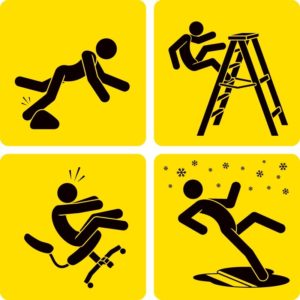In the age of Tripadvisor, Trivago, Booking.com, and Kayak, hotels and other hospitality establishments are under immense pressure to keep up customer standards. After all, just a single bad review can turn customers away. And with often low-pay and long hours, staff have to work harder than ever.
Workplace fatigue
Bed manufacturer, Sealy, undertook a study in 2017 named the ‘Worldwide Sleep Census’, which interviewed 5,000 people. One of the primary findings was that 86% of those employed in the hospitality industry felt they needed more sleep to allow them to function better at work; making the sector the most sleep deprived of all professions in the UK, according to the author of the study.
Part of the reason for fatigue being commonplace in hospitality is that staff commonly work in shifts, as do 3.5 million workers in the UK. Shifts can be long, during anti-social hours, and may not allow sufficient time between rostered duties for rest. According to the Health and Safety Executive (HSE), if shift-patterns do not balance the demands of work and the need for rest and recovery, accidents and injuries often occur as a direct result of tiredness. In addition, repetitive or complex tasks can also lead to fatigue.
Fatigue leads to accidents and injuries at work because it causes a considerable reduction in mental and physical capacity.
The symptoms of fatigue can include :
- slower reactions,
- reduced ability to process information,
- memory lapses,
- absent-mindedness,
- decreased awareness,
- lack of attention,
- underestimation of risk,
- reduced coordination etc.
Any one of these symptoms can lead to serious accidents. In fact, some of the most serious accidents to hit the headlines in recent decades, following investigation, were found to be due to workplace fatigue, including the Herald of Free Enterprise, Clapham Junction, and Exxon Valdez disasters to name but a few.
Under the Health and Safety at Work etc Act 1974, employers have a duty to protect the health, safety and welfare of all their employees when at work. In addition, the Management of Health and Safety at Work Regulations 1999 state that employers must assess the risk of work tasks, including the hours worked. Any employer, therefore, that uses shift-working arrangements must establish a system to manage the risks of shift work. By setting clear guidelines for the scheduling of shift-work which balance the task, hours worked, the need for recovery and the needs of those who are more vulnerable to fatigue, employers can ensure that accidents and injuries caused by tiredness are kept to a minimum.
Slips, trips and falls
Anyone who has worked in hospitality will tell you how fast-paced and pressured it can be. Slips, trips, and falls are the primary cause of accidents across all industries in the UK, and this is certainly the case in the hospitality sector. The professions most affected by slips, trips, and falls are kitchen assistants, chefs and, waiting staff . The causes of such accidents include:
- Food or liquid spills

- Overflowing sinks, or leaking pipes
- Poor floor surfaces
- Floors not cleared of trip hazards
- Floors that are wet following cleaning
- Carrying hot oil
title=”Accidents in the Hospitality Industry”
Slips, trips, and falls are all preventable with the implementation of robust working practices including keeping floors clear, dry and level, wearing of safety footwear. In addition, no worker should be encouraged to rush, thereby putting themselves in danger.
Manual Handling
Manual handling includes the lifting, carrying, placing down, pulling, or carrying of a load. Under the Manual Handling Operations Regulations 1992 (MHOR), employers are required to:
- avoid the need for hazardous manual handling, so far as is reasonably practicable;
- assess the risk of injury from any hazardous manual handling that can’t be avoided; and
- reduce the risk of injury from hazardous manual handling, so far as is reasonably practicable.
In the hospitality industry, there are many work tasks which may necessitate manual handling, for example, lifting luggage, moving chairs and tables, and moving boxes containing food. It is therefore essential that employers train staff on manual handling best practice. Regular training and re-training is vital to ensuring that the ethos of safety first is maintained.
Can I claim for compensation if I have been injured in the hospitality industry?
There are many claims each year by hospitality workers who have suffered a serious accident at work. To be successful in your claim, it will be necessary to prove that your employer was negligent. For example, was your shift-pattern such that your working hours were excessive, leading to fatigue? Were you trained in manual handling, and if so, how long ago? Or did you slip on a poorly maintained floor surface, or car park? If you are unsure if you have a valid claim, contact one of our specialist workplace personal injury solicitors, who will take the time to listen to the details of your case, and based on their experience and expert knowledge, will be able to confirm if your employer is liable for your injuries.
At Russell Worth Solicitors we specialise in personal injury claims. If you have suffered a workplace injury and would like a free claim assessment, please call us now on 0800 028 2060 or complete our Online Claim Assessment.

